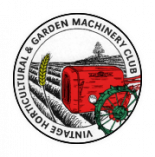Forum Replies Created
-
AuthorPosts
-
April 24, 2022 at 9:32 am #38885
john-e-w
ParticipantNow that you have got the piston out – what happened to the split pin that was in the lower barrel?
John E-W
April 18, 2022 at 6:36 pm #38830john-e-w
ParticipantIs it a pin, or a broken piston ring?
John E-W
April 15, 2022 at 12:00 pm #38814john-e-w
ParticipantWell done John.
It looks like there is a Woodruf key on the shaft which is good engineering and it’s a pity that Villiers didn’t use them as it would have made setting the timing a lot easier. When you reassemble the flywheel it can be easier if you “rock” the key so that the leading end is lower than the trailing end. Just make sure that it is all lined up with the cutout on the flywheel and as you tighten the nut it should “rock” back into position so that it is parallel with the shaft.John E-W
April 10, 2022 at 12:53 pm #38769john-e-w
ParticipantI have found that Diesel makes a good perpetrating oil.
John E-W
January 4, 2022 at 9:17 am #38412john-e-w
ParticipantRef the rubber handles – you could use my bodge and try your local motor-parts shop and ask for some car heater hoses which are aprox 1/2″ dia and cut them to the correct length.
John E-W
September 16, 2021 at 2:27 pm #37881john-e-w
ParticipantI have used “Shoulder of Shoreham” a couple of times, although they will probably want to sell you the whole wheel and not just the bearing – but there are plenty of bearing sales places if you google it – your bearing will probably be imperial rather than metric.
After a complete rebuild a wheel bearing should be a doddle!!
Best of luck
John E-WAugust 21, 2021 at 10:12 am #37719john-e-w
ParticipantRe the statement above by hdtrust – Your engine is a 248cc RSJ (Ransomes Simms & Jefferies) which is centrifugal
Question from a grey-haired old fogie – what is a centrifugal engine and how do they work? Is this the forerunner of the Mazda rotary engine?
Regards
John E-WJuly 20, 2021 at 8:23 am #37460john-e-w
ParticipantI must admit I’m not familiar with these machines – what is the cooking pot on the top of the petrol tank?
John E-W
June 23, 2021 at 5:17 pm #37364john-e-w
ParticipantHi uru33 – I had a twin cylinder Howard Gem and I manufactured a double plough(ridger) for my potatoes. I fitted it in place of the depth foot and used the tillers to soften the soil and help drive the equipment forward. I have very heavy clay based soil, so every little bit of forward motion helps. Unfortunately I sold the rotovator a couple of years ago and gave the buyer the ridger, so I am unable to take a photo of it. It was a bit tricky using it as it did stick out at the back a bit and my feet kept on tripping over the ridger, especially when I had to turn round at the end of the row to go back the other way! You may be able to manufacture half a ridger to act as a plough.
Best of luck
John E-WJune 16, 2021 at 9:13 am #37335john-e-w
ParticipantGood day all
Timing all fine now, tweaked it very slightly. The only problem is that it’s impossible to check the points with the brass cover on the points housing with the flywheel fitted – unless there is a crafty way of removing/replacing it that I haven’t discovered – any ideas??June 3, 2021 at 4:56 pm #37281john-e-w
ParticipantDoes the Monroetiller have sufficient power to drag this through the soil? I guess it depends on soil type – it might struggle in my clay based soil.
John E-W
April 22, 2021 at 12:46 pm #37015john-e-w
ParticipantWow! my dad used to have one exactly the same as in your picture – depending on your location, I wouldn’t mind having a go at restoration. I’m just outside Sevenoaks in Kent.
Regards
John E-WMarch 25, 2021 at 9:47 pm #36836john-e-w
ParticipantNow I have the rotovator up and running, the only problem I have is when I stop it after 45-50mins work and it’s nice and warm. It stops OK but in doing so it backfires quite alarmingly. Does that mean that it is too far advanced or too far retarded. I must say I’m not a fan of adjusting the timing by the placement of the flywheel on the tapered shaft – why on earth didn’t they fix the flywheel and timing with a key-way?
Any advice welcomed
JohnMarch 17, 2021 at 9:18 am #36792john-e-w
ParticipantThanks for info Charlie
Having posted my message on the forum, I then read some of the backdated newsletters, only to find that back in the day you were advertising “User Manuals” for sale. Is this still the case and if so could I purchase one please.
Unfortunately I’m not really clued up on the new “digital speak” – what is a pm?
Regards
John E-WMarch 16, 2021 at 11:40 am #36790john-e-w
ParticipantGood-day all
I have just rebuilt (successfully) the Mk15 engine for my rotovator. Now I need to know about the oil requirements for the two (gear trains?) just in front of the tiller unit. How do you drain the emulsified oil out as there doesn’t appear to be a drain plug, and what oil do I refill them with (20-50??). I was also surprised that the tiller shaft did not have any grease nipples at either end and the free end appears to be a plain bearing.
Does anybody out there have a users manual for the Mk3 Monro rotovator?
Thanks in advance
John -
AuthorPosts
